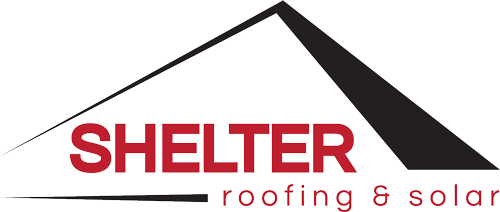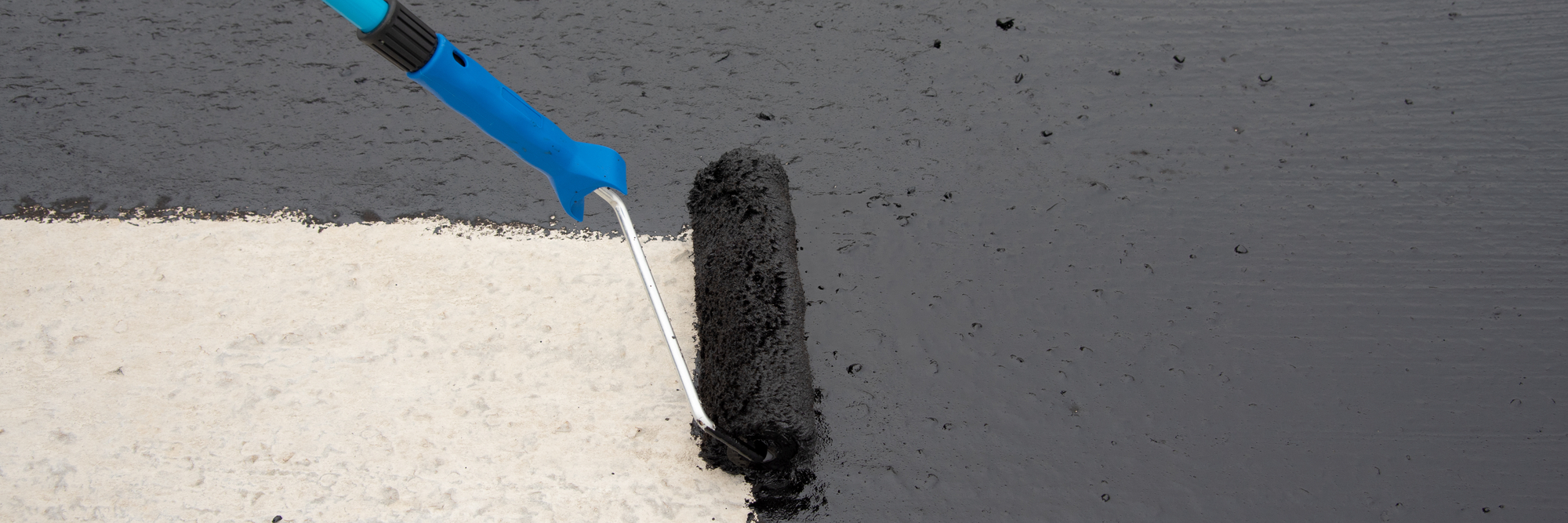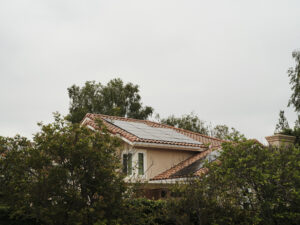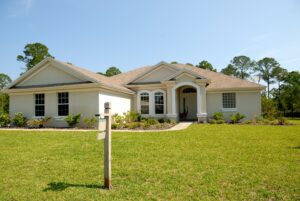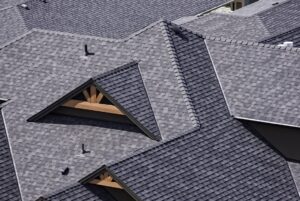In commercial real estate, few things undermine asset value faster than roof failure. And here in Ventura County, flat roofs take a beating—between UV exposure, ponding water, coastal moisture, and seasonal rain, your roofing system has to work harder than most.
So when commercial property owners ask us, “What is the best commercial roofing material for flat roofs?” — we give them a no-spin answer: modified bitumen roofing.
It’s built for commercial buildings. It lasts decades. It’s cost-effective. And when you install it before the rainy season, it delivers real peace of mind.
What You’ll Learn in This Post
If you’re considering a roof upgrade before winter, this guide explains exactly why modified bitumen is one of the best fall commercial roofing options in Ventura County. Here’s what you’ll get:
- A plain-English explanation of modified bitumen roofing
- Why it’s ideal for Ventura County’s unique weather and code conditions
- How it compares to other commercial roofing materials
- What to know before installing this fall
- FAQs from local building owners just like you
Whether you’re managing a church, a warehouse, or a multi-family building — Shelter Roofing & Solar can help you protect your investment and meet compliance.
Why Commercial Roofs in Ventura County Demand a Durable, Code-Compliant System
Flat and low-slope commercial roofs across Ventura County aren’t just exposed—they’re tested.
Between long dry spells, sudden storms, and California’s energy codes, most buildings in the region need a system that balances strength, flexibility, and efficiency. Many older roofs just don’t cut it anymore. They’re patched, sealed, and re-patched—but that’s not a long-term strategy.
Modified bitumen solves these problems. And it’s not just us saying that—building owners across Southern California are turning to mod-bit systems because they simply work.
What Is Modified Bitumen Roofing?
Modified bitumen is an asphalt-based membrane roofing system, reinforced with either APP (plastic-modified) or SBS (rubber-modified) polymers. It’s installed in layers using a variety of methods: torch-down heat welding, cold adhesive, or peel-and-stick.
It’s designed for flat and low-slope commercial roofs, offering long-term waterproofing, UV resistance, and foot traffic durability.
Why It Works:
- Multi-layer construction resists leaks
- Flexible material adapts to thermal expansion
- Works well with rooftop equipment and foot traffic
- Compatible with cool roof coatings
- Easily patched, resealed, or recoated over time
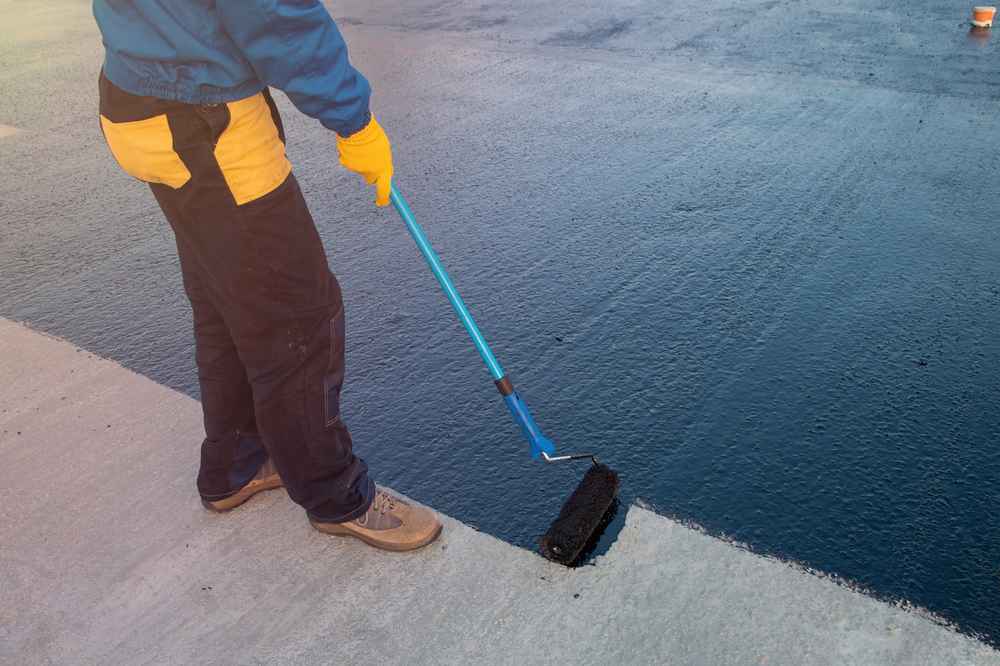
Key Considerations Before Installing Modified Bitumen Roofing This Fall
If you’re evaluating roof replacement or upgrades before winter, here’s what to think through first:
1. Budget Planning
Installed costs typically fall between $5–$10 per square foot. While not the cheapest, modified bitumen offers superior durability and lower lifetime maintenance costs than single-ply options.
2. Permits & Code Requirements
Commercial roofs in Ventura County must meet Title 24 energy codes, local fire ratings, and drainage specifications. We handle all permitting, inspections, and code compliance in-house—no handoffs or headaches.
3. Project Timing
Fall is roofing season. Days are cooler, materials bond better, and it’s the last window before winter. Schedules fill up fast, so early booking matters.
4. System Selection
APP vs. SBS? Granulated cap sheet? Reflective coating? We’ll walk through the options with you and tailor the system to your building’s needs.
5 Reasons Modified Bitumen Is the Best Commercial Roofing Material for Fall
Here’s what makes modified bitumen the top choice for smart property owners planning a fall installation:
1. Designed for Rain and Sun
With Ventura County’s warm falls and wet winters, you need a system that resists both UV rays and standing water. Modified bitumen does both—without degrading.
2. Ideal for Fall Installation
Unlike single-ply systems that need dry, hot days, modified bitumen can be installed with different methods—making fall the perfect time to complete the job before rain hits.
3. Built for Flat Commercial Roofs
Warehouses, retail centers, churches, and storage buildings all rely on flat or low-slope systems. Modified bitumen is engineered for exactly this kind of exposure and usage.
4. Upgradeable for Title 24 Energy Compliance
Add a reflective white silicone or acrylic coating (like Apoc) and your system meets cool roof requirements. That’s a big win for energy savings and code compliance.
5. Easier Maintenance Over Time
Unlike more fragile systems, modified bitumen can be patched without tearing up your roof. It’s one of the most serviceable commercial systems out there—something your budget will thank you for later.
SBS vs. APP: Choosing the Right Modified Bitumen System
Not all mod-bit is the same. Here’s the quick breakdown:
| Type | Best For | Installation Method |
| SBS | Flexibility, cold weather, roof movement | Cold-applied or self-adhered |
| APP | Heat resistance, UV exposure, durability | Torch-applied (heat-welded) |
We’ll help you choose the right system based on climate, budget, roof use, and your long-term plans.
What Shelter Roofing & Solar Includes in Every Commercial Roof Job
We’ve installed modified bitumen roofing systems for churches, warehouses, retail complexes, multi-family buildings, and storage units across Ventura County.
Every project includes:
- Tear-off, haul-away, and site prep
- Full membrane installation
- Custom drainage planning
- Optional energy-compliant reflective coatings
- Manufacturer warranties (up to 20 years)
- Workmanship warranties (10–25 years)
- No subcontractors — all work done by our in-house team
Is Modified Bitumen the Right Fit for Your Roof? Pros and Cons to Know
| Pros | Cons |
| Excellent waterproofing for flat roofs | Slightly heavier than single-ply systems |
| Flexible install methods (good for fall weather) | Torch installs require skilled, certified crews |
| Compatible with energy-efficient coatings | Not reflective unless coated |
| Easily repairable over time | Slightly longer install time than some systems |
| Code-compliant and proven over decades | Weight load may require evaluation on older roofs |
Commercial Roofing Questions: Ventura County Property Owners Ask These the Most
Is modified bitumen better than single-ply roofing?
Yes, modified bitumen roofing is often better than TPO or EPDM for flat commercial roofs. It handles ponding water, UV exposure, and rooftop traffic more reliably and is easier to repair over time.
How long does modified bitumen roofing last?
Modified bitumen roofing lasts 20 to 30 years. With reflective coating and routine maintenance, you can often extend its lifespan beyond 25 years.
Is fall a good time to install commercial roofing?
Yes, fall is a great time for commercial roofing projects. Cooler temps improve installation quality, and finishing before winter prevents leak emergencies.
Does modified bitumen qualify as a cool roof?
Modified bitumen qualifies as a cool roof when coated with a reflective material like silicone or acrylic. Shelter Roofing & Solar offers these upgrades to help you meet Title 24 requirements and lower energy bills.
Can modified bitumen be repaired?
Yes, modified bitumen roofing is easy to repair. Localized patches can be made without affecting the entire system, saving time and money.
Does Shelter Roofing & Solar install modified bitumen directly?
Yes, Shelter Roofing & Solar installs every modified bitumen system with our own in-house team. We manage your entire project—no outsourcing, no middlemen, no confusion.
Why Modified Bitumen Roofing Pays Off for Commercial Buildings in Ventura County
If you’re looking for a durable, code-compliant roofing solution for a flat or low-slope building in Ventura County, modified bitumen is a smart long-term move.
It’s not flashy—but it works. It protects your property. It’s easy to maintain. And when you partner with a local, licensed contractor like Shelter Roofing & Solar, your investment stays protected from day one.
We’ve been doing commercial roofs for over 44 years—and we’re not going anywhere.
Schedule your free commercial roof inspection today and let’s find the system that works best for your building, your timeline, and your budget.
